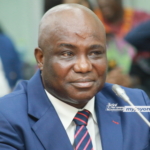
Soon after attaining independence, the leader of Ghana’s national struggle for freedom, Kwame Nkrumah, became aware of the threats of coloniality beyond the colonial era.
The new nation, Ghana, had a new task: how to consciously disengage from, counteract, and remove colonial vestiges embedded in its laws, institutions, inherited traditions and concepts.
Whereas Nkrumah deemed the struggle primarily economic and political, other thinkers such as Kwasi Wiredu, Ghana’s foremost analytic philosopher and founding father of African Philosophy, regarded the task as intellectual.
He canonised the term “conceptual decolonisation” for this intellectual exercise. He stated that by conceptual decolonisation, “I mean the purging of African philosophical thinking of
all uncritical assimilation of Western ways of thinking.”
The process of conceptual decolonisation has been underway at the intellectual level much faster than in political and economic spheres. This practical gap between theory and practice further affirms Nkrumah’s aphorism that “practice without thought is blind and thought without practice is empty.”
Today, I join the list of attempts to put theory into practice, hoping that the former may influence the latter.
In this brief account, I discuss the case of Shafic Osman vs the Board of Governors of Wesley Girls Senior High, the Ghana Education Service, and the Attorney General (2025). In this discussion, I examine the parties’ legal arguments against a colonial backdrop.
I conclude that a decolonial outlook on law and history requires rejecting the Defendants’ argument to the extent that it permits the persistence of the colonial tradition that allows the operation of religious programs in public schools on public funds.
Brief Facts of the Case
The Plaintiff in this case, Shafic Osman, is a citizen of Ghana, and pursuant to Article
2(1) of the 1992 Constitution, challenges the constitutionality of Wesley Girls School’s
educational program that:
- It restricts students of Islamic belief and faith from manifesting their religious
practices on campus, while permitting students of Christian belief and faith to
do so. This, he contends, offends Articles 21 and 17 to the extent that it is
discriminatory and restrictive of religious freedom. - The running of a compulsory religious program in a public school of such public
character offends Article 21 (1) b & c, as it is impermissible for the state to
adopt a religious character.
The reliefs extend beyond these, but these two exhaustively cover the primary bases
for the legal challenge; thus, I restrict my analyses to them.
On 24 November 2025, the Supreme Court of Ghana began hearing oral addresses. It
has come to my attention that the Attorney General, during the hearing, has since
indicated that it had filed a defence to the case on the following grounds.
a. The Methodist church historically owns Wesley Girls’.
b. Wesley Girls’ remained owned by the Methodist church.
c. The government only funds Wesley Girls but does not own it.
d. Wesley Girls’ School is faith-based and can express its Christian faith through
its programs.
These arguments find disfavour with a proper construction of the 1992 Constitution
and a decolonial perspective to history.
Decolonisation and the separation of the Church and the Public Ghana, as we have come to know it, was established in 1957.
Before that, portions of that territory remained under British rule.
As it may now be historically trite, Ghana’s colonial encounter began sometime in the 15th century, through colonising experiments undertaken by religious missionaries.
After British colonial rule was established in 1874, the colonial government collaborated with missionary schools to run an education program in the colony.
Wesley Girls was one such school. It is worth noting that, under this colonial experiment, anyone who hoped to be educated had to become Christianized and baptised.
This led to a wide erosion of traditional religion and practice. To the colonisers, the native Ghanaian was barbaric and uncultured and needed to be purified through the Christian faith.
It is not an exaggeration to say that Christianity became the faith of the government and of the colonial society. It wore a public cap and was imposed in the public sphere from education, politics, to public social events.
In 1957, Ghana gained independence.
The postcolonial government started with the undoing of colonial practices that rendered the native poorer and shackled in the cultural and sociological chains of its former colonial officers.
One modest way the then Nkrumah government considered emancipating Ghanaians was through widespread education that trained the native mind to acquire skills, reason, and prepare herself for the global challenges facing the new nation.
Nkrumah commenced building many public schools. In 1961, he passed the Education
Act (Act 87), which made education free and compulsory. Under this law, educational
institutions were of two kinds:
a. Public system education institutions (section 1, Act 87)
b. Private education institutions (section 17 of Act 87)
Public Institutions are of two kinds: Publicly owned schools and publicly funded
schools. Under section 32 of Act 87, the “public” is defined to mean: public in relation
to an institution, means a Government or assisted institution maintained wholly or
in part from government or local government funds.
Thus, any institution owned or funded by the government became a public institution and retained its public character.
By this public character, it was free and open to access.
In 1961, Wesley Girls’ School became a public educational institution under the Act
- This ended a period in which public funds could be used to support a non-public
educational institution. By being public, the government could place it under the
education committee and decide which programs to run and which curricula to teach.
In 1993, when the 1992 Constitution came into force, Article 25 guaranteed the right to education. Article 25(2) provides that if anyone intends to run a private institution, that person shall do so at their own expense, which means that no private institution shall be funded with state money.
It maintained a clear distinction between public and private institutions, as did Act 87.
So, the argument that Wesley Girls’ School is owned by the Methodist Church, yet funded by the government, is a contradiction of terms and a legal sophistry forged from the belly of error to mislead the court.
If Wesley Girls’ School is owned by a private entity, the Methodist Church, then it cannot be funded by the government.
The purpose of Article 25(2)’s separation of public institutions and private institutions is to ensure that public institutions keep their character of being public while being funded with taxes of all citizens.
One very essential character is that it doesn’t become a private apparatus for any divisive, oppressive, or non-public purpose. It is worth noting that the propagation of religious faith and belief is a private activity.
Since public taxes come from Muslims, Christians, and Atheists, traditional worshipers, and all manner of religions and beliefs, it is untenable for taxes to be used to assist, support, and maintain schools that are committed to enhancing faiths and beliefs.
With our colonial history in mind, Act 87, like Article 25, sought to end the use of
publicly funded schools for pursuing religious and other private agendas. And since 1961, Wesley Girls’ School has changed into a public institution.
Public funds fund its infrastructure, teachers, and officers. It cannot now claim to be owned by a private
entity known as the Methodist church.
Corporate Entities and Manifestation of Religious Beliefs and Practices
The second argument by the Defendant is that the Methodist Church owns Wesley
Girls’ School and, as a private entity, it has the right to manifest its own religion.
Although it has been argued that Wesley Girls’ School has, since 1961, become a public institution and cannot be deemed a private institution, for purposes of argument, let us assume it to be a private entity and consider whether it has the right to manifest its own religious practice.
Under Article 12 of the 1992, rights and freedoms are to be enjoyed by both natural and artificial entities. In the Ghana case of CIBA, it has been held that artificial entities, such as privately owned entities, enjoy human rights under the Constitution and are deemed persons under Articles 2 and 33 for purposes of bringing an action in defence of their rights.
See also, Attorney-General v Antigua Times [1976].
It is equally interesting to note that another representative democracy like ours has
considered similar legal issues—the United States Supreme Court, in Burwell.
Holly Lobby (2014) held that artificial entities can also exercise freedom of religion and, on
that basis, object to third parties’ actions based on their religious beliefs.
Wesley Girls’ argues that the school is an artificial entity, examining its religious history from its formative days.
On that, it may suggest that it has legitimate religious beliefs that it can use to object to the admission and practice of the Muslim religion on its campus, or that it can compel anyone to conform to its religious
programs.
In the Hobby Lobby Case, the U.S Supreme Court extended the freedom of religion to only private artificial entities. It only includes entities owned by individuals who may use these corporate vehicles to express their personal beliefs.
If we concede to the argument that the Methodist Church privately owns Wesley Girls’ School, we may also admit to the fact that it can run a religious program.
Financing Religious Activity by the State using Public Funds
The Defendants also argue that, even if it is admitted that Wesley Girls’ School is a privately owned entity of the Methodist Church, it can still benefit from public funding to run its religiously controlled school program.
It is worth noting that, in the United States, since Everson v. Board of Education (1947), it has been accepted that religious schools cannot be funded with public funds.
The court of Ghana has not yet decided the question, but as set out in Article 25(2), once an educational entity is privately owned, it shall bear its own expenses. Thus, the state cannot fund a privately owned educational school.
For our purposes, Article 25(2) provides:
Every person shall have the right, at his own expense, to establish and maintain a private school or schools at all levels and of such categories and in accordance with such conditions as may be provided by law.
That notwithstanding, it is equally impermissible for public funds that come from all persons to be used to maintain religious schools committed to impacting certain faiths, teaching, and beliefs.
The danger, though, is that, since Bomfeh v. AG (Cathedral case), it appears Ghana’s Supreme Court favours a system in which the government can assist religious entities for religious purposes.
Thus, in a very narrow sense, the government can become involved in spiritual activities.
But in that case, the Attorney General presented evidence to the court that the State will not be directly funding the cathedral; thus, the court’s ruling does not suggest that it is permissible for the State to fund religious activity directly.
- President Commissions 36.5 Million Dollars Hospital In The Tain District
- You Will Not Go Free For Killing An Hard Working MP – Akufo-Addo To MP’s Killer
- I Will Lead You To Victory – Ato Forson Assures NDC Supporters
Visit Our Social Media for More




